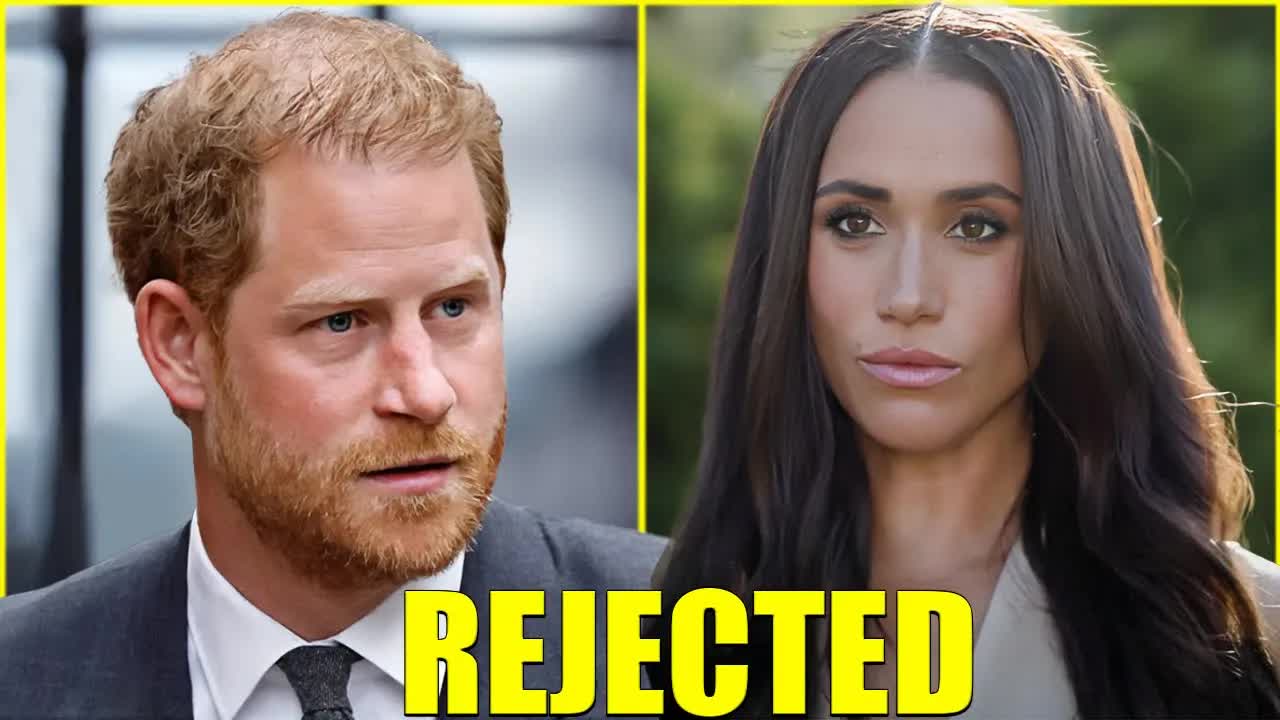Must Read
Prince Harry’s Security Dilemma: A Royal Family Conundrum
The British Royal Family has made their stance clear regarding Prince Harry's recent request for security during his upcoming visit to the UK.
In a surprising twist, Harry has reconsidered his attendance at the Invictus Games service, citing safety concerns that seem to stem from both personal and familial anxieties.
It appears that the Duke of Sussex is not only worried about his wife but also about his own safety when returning to his homeland.
Harry's aides have confirmed that he plans to participate in the service at St. Paul's Cathedral on May 8.
However, he is weighing his options, which include attending in person, sending a video message, or even submitting a pre-recorded address.
This indecision follows a series of court setbacks regarding his security arrangements in the UK.
While he did win a legal battle against the Home Office concerning police protection, his overall security situation remains precarious.
Since stepping back from royal duties and relocating to the United States, Harry has been left to cover his own security costs during visits to the UK unless he is engaged in official royal duties.
Many argue that as he now resides in America and is subject to its tax laws, it seems unjust for UK taxpayers to foot the bill for his security arrangements.
Adding to the drama, a recent court ruling left Harry with a staggering bill of over £1 million, including legal fees, after his appeal to reduce costs was denied.
The judge's decision has drawn mixed reactions, with some feeling that Harry should have anticipated this outcome given his current status.
His situation raises questions about his expectations of support from the British public.
Despite these challenges, Harry remains committed to the Invictus Games, which he founded to honor wounded veterans.
The event marks its 10th anniversary, and while he intends to attend, there are murmurs that he may opt for a virtual presence instead.
But can one truly celebrate such an important occasion from behind a screen?
The security concerns overshadowing his potential attendance seem almost excessive, especially considering the level of protection he already enjoys.
Many observers are puzzled by Harry's persistent fear for his safety.
After all, he has access to round-the-clock security and is often surrounded by guards.
The notion that he faces imminent danger from the British public seems far-fetched to some.
Is it possible that Harry's fears stem more from his past actions and the fallout from his departure from royal life rather than any real threat to his safety?
The public sentiment surrounding Harry has shifted dramatically since his exit from royal duties.
Many Britons express resentment towards him, particularly after high-profile events like the Jubilee and the Queen's funeral, where Harry's presence was met with hostility.
His ongoing legal battles for security appear to many as an attempt to create an image of victimhood rather than addressing the realities of his situation.
Moreover, Harry's insistence on maintaining a high-profile lifestyle while simultaneously seeking taxpayer-funded protection raises eyebrows.
If he wishes to live in the United States and embrace a celebrity status, should he not also bear the financial responsibilities that come with it?
His attempts to maintain a connection to the UK while distancing himself from royal obligations create a confusing narrative.
As discussions about his potential attendance at the Invictus Games continue, the focus should ideally remain on honoring the veterans rather than Harry's personal dilemmas.
His presence should not overshadow the achievements of those who have fought valiantly for their country.
It's crucial to remember that the Invictus Games were established to celebrate the resilience and courage of these individuals, not to serve as a backdrop for Harry's ongoing saga.
With Meghan opting to stay behind with the children, Harry's options for participation seem limited.
Should he choose to record a message instead, it could save significant costs associated with travel and accommodations.
This decision might also allow for more funds to be directed towards the veterans who truly deserve the spotlight.
Ultimately, the question remains whether Harry's absence from the UK will be beneficial for both him and the Invictus Games.
His ongoing struggles with security and public perception reflect deeper issues within the royal family dynamic.
As Harry navigates this complex landscape, it becomes increasingly clear that the focus should shift back to the mission of the Invictus Games and the remarkable individuals they aim to support.
In light of all these developments, it might be time for Harry to reevaluate his approach.
Instead of seeking protection under the guise of a royal title, perhaps he should embrace the role of a private citizen and advocate for the causes he cares about without the weight of royal expectations.
The world is watching, and as he continues to grapple with his identity, it is evident that the path forward must prioritize the very values he once championed.








































